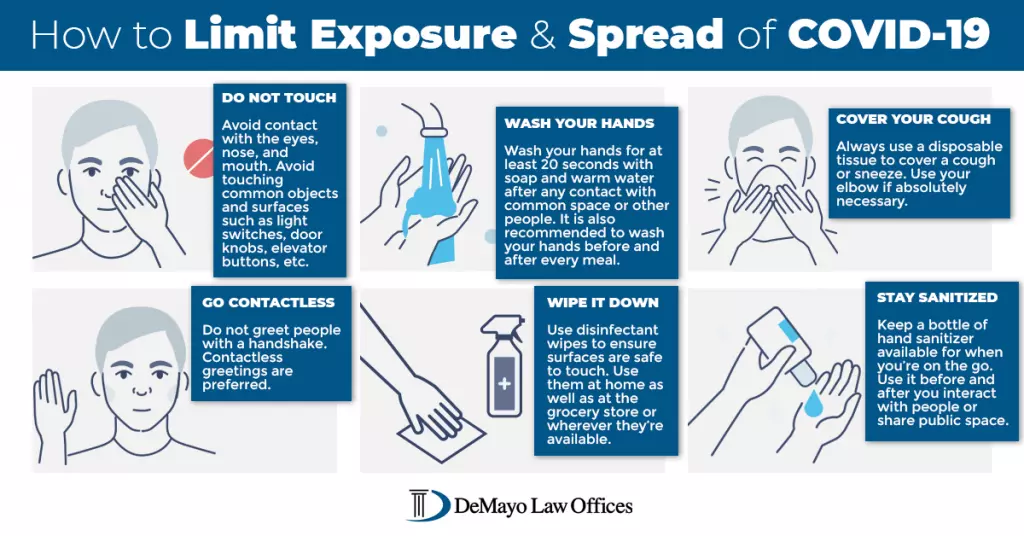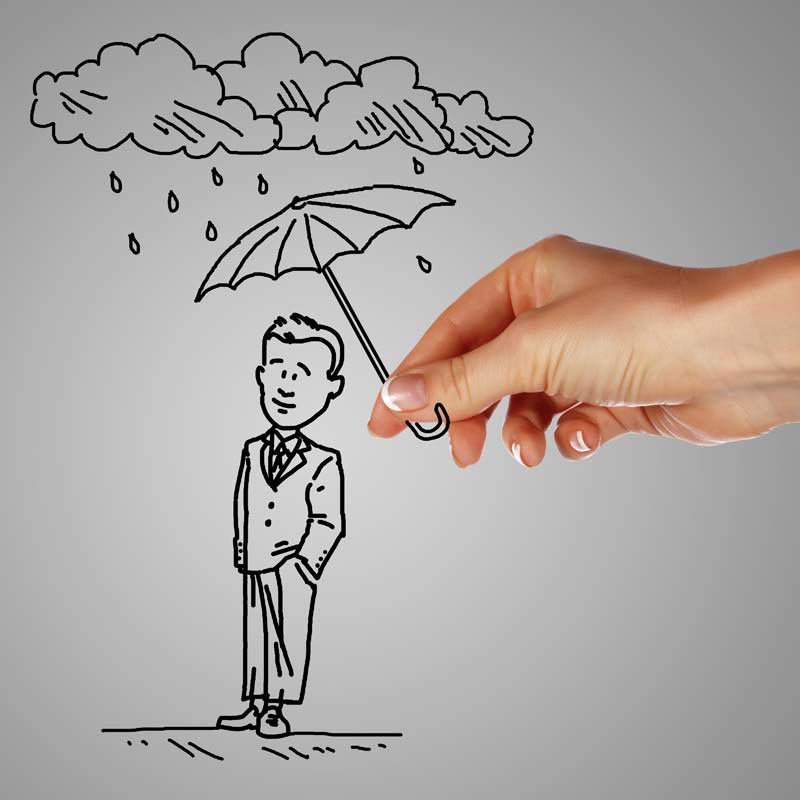Make no mistake, the Coronavirus (COVID-19) will continue to spread, and in its wake, will change the world we live in and know forever. For the elderly or those living with a compromised immune system or respiratory disease, this global pandemic poses legitimate health risks including life-threatening illness.
For those living in a nursing home or assisted living facility, the risks are paramount. It’s critical these facilities follow the guidelines and procedures recommended by health organizations and officials to protect those most vulnerable from the COVID-19 outbreak.
Here’s what you need to know about the Coronavirus including best practices to limit exposure and the spread of COVID-19.
What Is the Coronavirus or COVID-19?
According to the World Health Organization (WHO), Coronaviruses are “a large family of viruses,” many of which are already familiar to us such as the common cold, Middle East Respiratory Syndrome (MERS), and Severe Acute Respiratory Syndrome (SARS). COVID-19 is a novel virus belonging to this family of infectious diseases and was discovered in Wuhan, China, in December 2019.
While the media has presented Coronavirus as the virus spurring the current outbreak, it’s actually COVID-19 that’s circling the globe. Again, Coronaviruses are a family of infectious diseases, not a specific virus. Prior to its discovery in China, COVID-19 was unknown to health officials.
While health organizations continue to learn how COVID-19 affects people, the elderly and individuals with pre-existing medical conditions appear to be the most vulnerable to developing symptoms and severe illness.
Despite varying opinions in the media, medical experts including the WHO, Medicare officials, and epidemiologists who study infectious diseases agree that COVID-19 must be taken seriously.
For a free legal consultation, call (877) 333-1000
Coronavirus Symptoms, Limiting Exposure & Spread
According to leading and reliable resources, symptoms of COVID-19 include, but may not be limited to:
- Fever
- Fatigue
- Dry cough
- Body aches and pains
- Nasal congestion
- Sore throat
- Diarrhea
COVID-19 symptoms are easy to mistake for other seasonal illnesses including the common cold or flu. If you experience symptoms, stay home and limit your contact with others.
About 80 percent of people will recover from COVID-19 exposure without special treatment. People with fever, cough, and difficulty breathing should seek medical attention.
Some individuals exposed to COVID-19 may not experience symptoms. It’s estimated that one in six people exposed to COVID-19 will become ill and develop serious complications. The elderly and those with compromised immune systems or respiratory disease are particularly vulnerable and most at risk.
COVID-19 is spread in the moisture expelled by an individual when they cough or sneeze. The virus can live for several days on different types of surfaces awaiting to transfer to other people.
To help reduce the spread of COVID-19, health officials recommend limiting contact with the eyes, nose, and mouth. It is also recommended that all people wash their hands several times a day for a minimum of 20 seconds each wash.
In addition to these recommendations, health officials have suggested other ways we can limit the spread of COVID-19.

| How to Limit Exposure & Spread of COVID-19 | ||
| DO NOT TOUCH Avoid contact with the eyes, nose, and mouth. Avoid touching common objects and surfaces such as light switches, doorknobs, elevator buttons, etc. | WASH YOUR HANDS Wash your hands for at least 20 seconds with soap and warm water after any contact with common space or other people. It is also recommended to wash your hands before and after every meal. |
COVER YOUR COUGH Always use a disposable tissue to cover a cough or sneeze. Use your elbow if absolutely necessary. |
| GO CONTACTLESS Do not greet people with a handshake. Contactless greetings are preferred. | WIPE IT DOWN Use disinfectant wipes to ensure surfaces are safe to touch. Use them at home as well as at the grocery store or wherever they’re available. | STAY SANITIZED Keep a bottle of hand sanitizer available for when you’re on the go. Use it before and after you interact with people or share public space. |
According to experts at Johns Hopkins Medical Center, “social distancing” or “self- quarantine” is another good way to slow down the spread of COVID-19. Good examples of social distancing include working from home instead of the office, closing schools and switching to online classes, and visiting loved ones via electronic devices instead of in-person.
Protecting the Elderly: Nursing Homes & Care Facilities
Nursing homes, assisted living facilities, and other care centers are currently at great risk. COVID-19 is highly contagious and easily spreads from person to person if safety protocols are ignored.
Sadly, the elderly and the infirm may not have the respiratory health or immunity needed to fight off an infectious disease like COVID-19.
According to the Centers for Diseases Control and Prevention (CDC), “The underlying health conditions and advanced age of many long-term care facility residents and the shared location of patients in one facility places these persons at risk for severe morbidity and death.”
In February of this year, a long-term residential care facility in Washington resulted in 81 confirmed cases of COVID-19 among elderly residents, 34 staff members, and 14 visitors. Sadly, 23 people died as a result of “limitations in effective infection control and prevention.”
The CDC, along with other health organizations, have developed safety protocols for nursing homes and similar care facilities to fight the rapid spread of COVID-19. This includes taking proactive measures to identify potentially infected staff members, restricting visitation, and strengthening infection prevention and control guidance and adherence.
If you or a loved one plans to visit a nursing home or other long-term care facility in North Carolina, the federal Centers for Medicare and Medicaid Services (CMS) has tightened rules for visitors. These facilities may ask that you:
- Wear a facemask or other personal protective equipment (PPE)
- Return to the facility at a preferred time or date
- Refrain from close contact with residents
- Visit with loved ones in a separated clean room near the entrance
- Use hand sanitizer and other disinfectants
Remember, even if you’re in good health, prevention isn’t just about preventing your exposure…it’s also about preventing someone else’s. If you have a loved one living in a nursing home or assisted living facility, it’s important to act proactively about your loved one’s health and safety.
To ensure these facilities are following safety protocols, contact the facility and ask the following questions:
- How does the facility plan to deal with the COVID-19 outbreak?
- How is the facility adapting family visitation?
- Does the facility have an Airborne Infection Isolation Room (AIIR)?
- How is the facility prepared with regards to food, medications, and other things residents might need?
- What steps are they taking to ensure residents, staff, and family members are informed on changes in the facility’s operation?
- What kind of cleaning supplies are being used in the facility and how often are they being used?
- Are group activities being canceled?
Nursing homes have policies in place for a variety of disasters and emergencies. They should be able to articulate a course of action, and they should be well prepared to weather the COVID-19 crisis.
However, the current outbreak has caught many by surprise and supply chains for important equipment, medication, and other necessities may be impacted. Staffing shortages in nursing homes across the country have also been reported.
Click to contact our personal injury lawyers today
When Facilities Don’t Follow the Rules…
The elderly and the infirm are counting on all of us to help reduce the exposure and spread of COVID-19, but they’re also counting on us to make sure nursing homes and other facilities are doing right by their residents and taking the appropriate steps to avoid a facility outbreak.
If you or a loved one finds that a facility is not taking steps to protect residents from COVID-19 or other infectious diseases, alert a doctor, nurse, healthcare professional, or North Carolina’s long-term care ombudsman.
Neglecting to take recommended action to protect residents could be viewed as negligent behavior, and at DeMayo Law Offices, we take cases of negligence very seriously by holding those accountable and fighting for the victim’s rights.
If you or someone you care about has suffered abuse or neglect at a nursing home, assisting living facility, or other long-term care center, contact us immediately for a free case evaluation at (877) 333-1000 .
Call or text (877) 333-1000 or complete a Free Case Evaluation form




